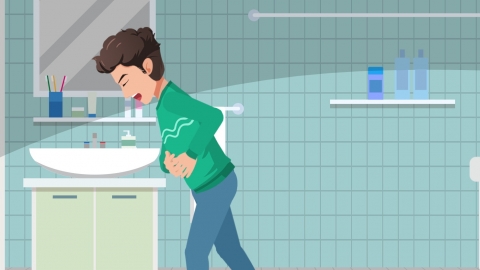What to do about stomach pain caused by norovirus
Generally speaking, a stomach ache refers to abdominal pain. After infection with norovirus, abdominal pain may be caused by increased intestinal gas, heightened intestinal sensitivity, intestinal flora imbalance, enteritis, intestinal obstruction, or other reasons. Treatment can be conducted under a doctor's guidance through general treatment, medication, or surgical methods. If symptoms such as abdominal pain occur, timely medical consultation is necessary for symptomatic treatment. The specific analysis is as follows:

1. Increased Intestinal Gas
Viral infections may affect the normal peristalsis of the intestines, leading to increased gas accumulation and causing bloating and abdominal pain. In daily life, excessive consumption of gas-producing foods such as legumes and carbonated beverages should be avoided to reduce gas production in the intestines.
2. Increased Intestinal Sensitivity
Norovirus infection can increase the sensitivity of the intestines to stimuli, and even mild food irritants may trigger abdominal pain. Therefore, patients should choose bland and easily digestible foods after infection and avoid spicy, greasy, and irritating foods.
3. Intestinal Flora Imbalance
Intestinal flora imbalance may be caused by long-term antibiotic use, an unreasonable diet structure, etc., which may disrupt the balance of intestinal flora, reduce beneficial bacteria, increase harmful bacteria, and cause abdominal pain. Accompanying symptoms may include bloating and indigestion. Patients can use medications such as Bifidobacterium quadruple viable tablets, Bacillus subtilis and Bifidobacterium lactis viable granules, and Bacillus coagulans viable tablets under a doctor's guidance.
4. Enteritis
Enteritis is mainly caused by bacteria, viruses, fungi, and parasites. During replication in the intestines, norovirus directly damages the intestinal mucosa, causing enteritis and resulting in abdominal pain. It is usually accompanied by symptoms such as diarrhea and nausea. Patients can take medications such as Enteritis Ling tablets, smectite powder, and omeprazole enteric-coated tablets under a doctor's guidance.
5. Intestinal Obstruction
Intestinal obstruction is mainly related to intestinal adhesions, intestinal inflammation, intestinal foreign bodies, and other factors. Norovirus infection may cause local intestinal edema, spasm, or adhesion, which can lead to intestinal obstruction and severe abdominal pain. Accompanying symptoms include vomiting and cessation of flatus and defecation. Patients need immediate medical attention and may require surgical treatment under a doctor's guidance, such as intestinal resection and anastomosis, which involves removing the affected segment and directly connecting the stomach to the jejunum to reduce the passage of gastric contents through the affected area.
In daily life, individuals should avoid consuming unclean food and water sources and choose fresh, clean, and well-cooked food to reduce the risk of viral infection.








